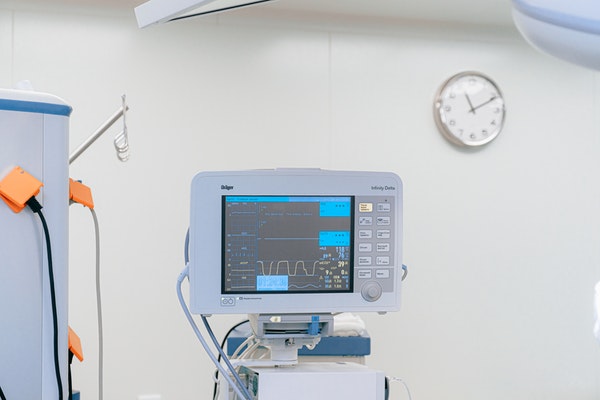Medical debt is an ongoing struggle to many consumers. Even if you are covered with insurance you still have a designated out-of-pocket expense depending on your insurance coverage. In addition, not all conditions are covered fully and these expenses tend to get even more expensive. For instance, things such as fertility treatment have the maximum coverage and the process and drugs tend to be very expensive. The stress that this can add to your overall financial and debt management is immense. A single trip to the hospital may end up costing thousands of dollars, and insurance. When you are faced with overwhelming medical bills, it’s important to know that there are resources available and steps you can take to manage your debt and relieve the stress of your financial difficulties.
Dealing with medical debt isn’t as straightforward as it is for other types of debt. There is considerably more flexibility for negotiation when it comes to this type of debt. If you have insurance coverage you need to make sure that you carefully go over your medical bills and compare them with the explanation of benefits.
Ways to Deal With Medical Debt
Like in any other consumer credit management plan, this type of debt too, needs to start with identifying what and where you have the problem. Making sure you are not missing out on anything and you have all your documents including your bills and your insurance benefits claims is the starting point. Once you have all of this information you are in a position to understand how severe the debt issue at hand is.
Once you have the information next step is to understand who to ask for help:
1. Asking for help sooner than later:
Medical debt is a serious problem faced by many American consumers. Thus it is not uncommon a lot of people are trying to figure out ways to pay down the debt. You just need to know who and when to ask for help. Sometimes the health care providers themselves will tell the patients if there is a doubt regarding insurance coverage. They sometimes speak with the insurance companies to explain why a certain claim needs to be covered. If a healthcare provider makes a case as to why a particular treatment should be covered almost always insurance companies make the exception. You just need to make sure you reach out to your healthcare providers as well as your insurance company at all times to get it done.
The other option is financial assistance or charity care programs in the hospitals. Dental care most often offers flexible payment plans that you can agree to prior to treatment. If you work with your providers to get this information beforehand, handling your medical debt is an easier journey than it can set out to be.
2. Avoid Using Credit Cards to Pay Off Medical Debt
It is always wise to take a cash approach to pay off your medical debt. If you do divert these debts to a credit card, you are potentially shifting the debt from the hospital. You are likely to end up with a higher cost in terms of interest and fees compared to a hospital policy. In addition to the obvious increase in cost, you are also losing out on whatever protections you may have on medical debt. Getting on a payment plan with a healthcare provider is a more cost-beneficial option rather than racking up even more credit card debt.
Your prescription medications can cost you a fortune. If you have good insurance cover some of these may be covered. However, if the insurance companies have limits on the prescription drug expenses, then you might need some extra cash to cover the expense. This is where you need a ton of research. Different pharmacies charge different prices on the same medication. Therefore, you need to make sure you call many suppliers before settling down on the first one you speak to. compare and contrast the prices among many suppliers to avoid overspending and adding to your overall medical debt.
4. If you Must Take the Credit Card Route…
If you are absolutely tight on cash and must take the credit card route to manage the medical debt, then make sure you make the right choice. Medical credit cards are an approach you can take in this case. While these are generally designed for specific procedures, this is always an option you can check on with y our providers. The benefit of this type of card is that in most cases these come with 6-12 month interest-free benefits. If you are able to make your payments within the interest-free time frame this can be a viable option to manage your debt. However, make sure it makes complete financial sense for your situation. If for any reason the cost outweighs the benefits you must resort to other options.
5. Check for Viable Payment Plans
Medical providers, dentists, and hospitals are always open to working out a payment plan for your bills. The relevant institution’s financial department can give you your options prior to a treatment plan or a procedure. They will also go through your insurance plan details to make sure the timing is right or you derive the maximum benefit financially depending on your plan. This is the most common way to resolve a payment you are unlikely to tackle in a single payment. However, make sure you have the right information about any billing charges or other fees that may include in a payment plan vs a one-time payment.
6. Manage the Debt Collectors
If you are starting to feel you are lagging behind on the medical payments you are likely to be contacted by debt collectors. Your due payments can go to debt collectors for a number of reasons. One of them can be billing errors or miscommunications between your health care providers and the insurance companies. If the Debt collectors keep persisting on payments you can actually consider sending them a no-contact letter. Make sure you have all the information is in order to handle the case.
7. Reach out to a Reputable Credit Counseling Agency for Help
Non profit credit counseling agencies such as ACCC can offer help with medical bills as well as other forms of debt. Through financial counseling, education, and debt management programs, we can help you to take back control of your financial situation. ACCC’s qualified debt counselors can help you find the best path out of debt.
- Free medical debt counseling
In your first free credit counseling session, our certified counselors will review your financial situation and take stock of your medical debt. They will walk you through all the options available to you. You can make a plan to start reducing your debt as well as your level of stress.
- ACCC medical debt services include
- A detailed review and analysis of your current financial situation
- An outline of personalized options for managing your debt based on your goals. This includes social service referrals, educational materials, and financial management resources
- Assistance in choosing and setting up the best plan for you – This includes an option for a Debt Management Plan
At the end of your medical debt counseling session, you’ll have a clear view of your path out of debt.
What not to do
Although you would like it, you may always not have the option of a quick fix when it comes to medical debt. Also, you are not in any position to ignore your medical debt. If you do either or of any of the above you can end up putting your credit score in jeopardy. As explained above transferring your medical bills to a credit card may not be the smartest option. Given that potentially you will incur more cost in interest and fees.
The positive side to this story is that delinquencies in your credit report made for medical debt are far easier managed than the other. there is a 180 day waiting period before an unpaid medical bill will appear on your credit report. Also if any of your medical accounts in collections are paid off later by your insurers, they will be removed from your reports.
Given the flexibility and the conversation that can take place regarding medical debt, it is a better type of debt to handle. Therefore, make sure you stay on top of things to get the best deal. Do not let it overwhelm you or take a toll on your actual and financial health.
If you struggle to pay off debt, schedule a free credit counseling session at ACCC today.






